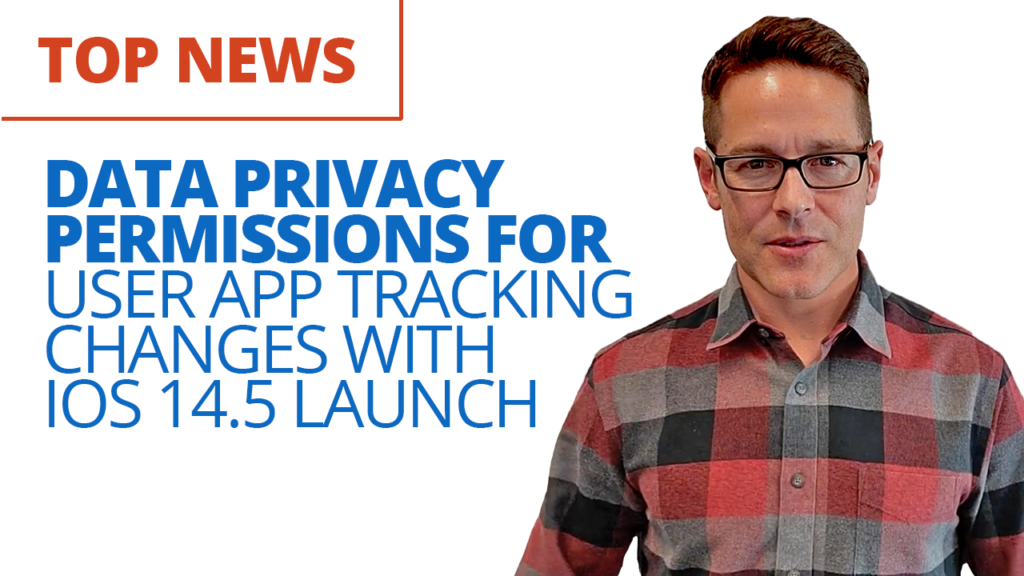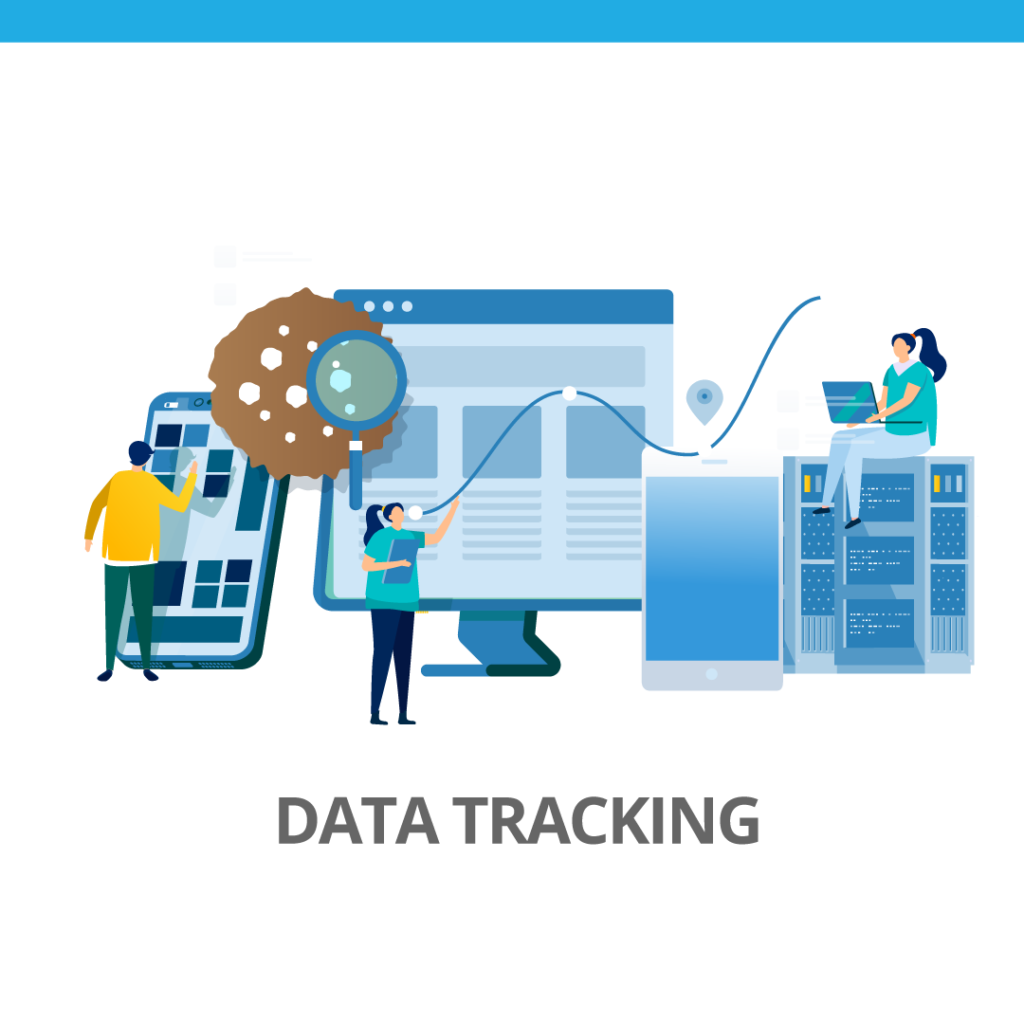The day that many digital marketers feared is now upon us.
Apple has officially announced the release of iOS 14.5.
It’s got some nifty new features, such as additional unlock options for people wearing face masks (thank you, COVID-19), updated voice options for Siri, the ability to report an incident in Apple Maps, and enhancements for reminders.
And it’s also including more privacy controls to help eliminate security threats.
One of those privacy controls affects you if you’re into online marketing.

Data Privacy Permissions For User App Tracking Changes With iOS 14.5 Launch
App Data Tracking Prompts
In an effort to boost data privacy, Apple added a prompt that requires an affirmative response from the user before any apps can track their data.
It used to be the case that people could turn off data tracking by going out of their way to flip a virtual switch.
Now, though, users are confronted with a prompt that asks “Do you want this app to track your data?” And they have to answer yes or no.
Unsurprisingly, many folks are going to answer no. That includes people who didn’t even know they could turn off data tracking in older versions of the OS.
Here’s Apple’s statement on the new feature: “App Tracking Transparency requires apps to get the user’s permission before tracking their data across apps or websites owned by other companies for advertising, or sharing their data with data brokers. Apps can prompt users for permission, and in Settings, users will be able to see which apps have requested permission to track so they can make changes to their choice at any time.”
Apple announced the update in June of last year. Since that time, lots of digital marketers have publicly worried about its release.
Why This Matters: Data Privacy
Why does this new feature bother strategists? Because without the ability to track user data, we’ll have a more difficult time finding (and, therefore, targeting) people in our markets.
Apps track info that includes people’s interests. And it’s often the case that marketers want to target ads to people based on their interests.
For example, if somebody likes polo shirts and I’m running a company that sells polo shirts, I’d like to run online ads in front of that person.
But I won’t know that person likes polo shirts if he uses an Apple iOS device and opts out of data tracking.
You see the problem here?
Also, some of that tracked data is often collected and aggregated to use in reports. In other words, without data tracking, digital marketers will have a harder time determining the ROI of their ads.
So yeah, this isn’t good news.

Data Tracking
Marketers Aren’t Alone When Dealing With Data Privacy
But online marketers aren’t the only ones unhappy with the iOS update. Facebook isn’t pleased, either.
In fact, Facebook launched a campaign against the new feature that included full-page newspaper ads. The two companies ended up squabbling in public.
Facebook tried to portray Apple as the bad guy because the move will raise costs for advertisers.
Apple shot back and said that’s acting in the interests of data privacy and reducing security threats.
Who won that war? It’s still ongoing, but it looks like Apple has the upper hand in terms of communication.
But Facebook isn’t the only social media company that doesn’t like the change. TikTok complained that iOS 14.5 would adversely affect online advertising as well.
Wrapping It Up
So how many users will decide to opt-out of data tracking?
Well, we don’t know. And that keeps us up at night as well.
The good news is that we’ll soon know the bad news. And then we can decide how to update our strategies.
But it’s almost certainly the case that we’ll have to make some changes.
Big changes.